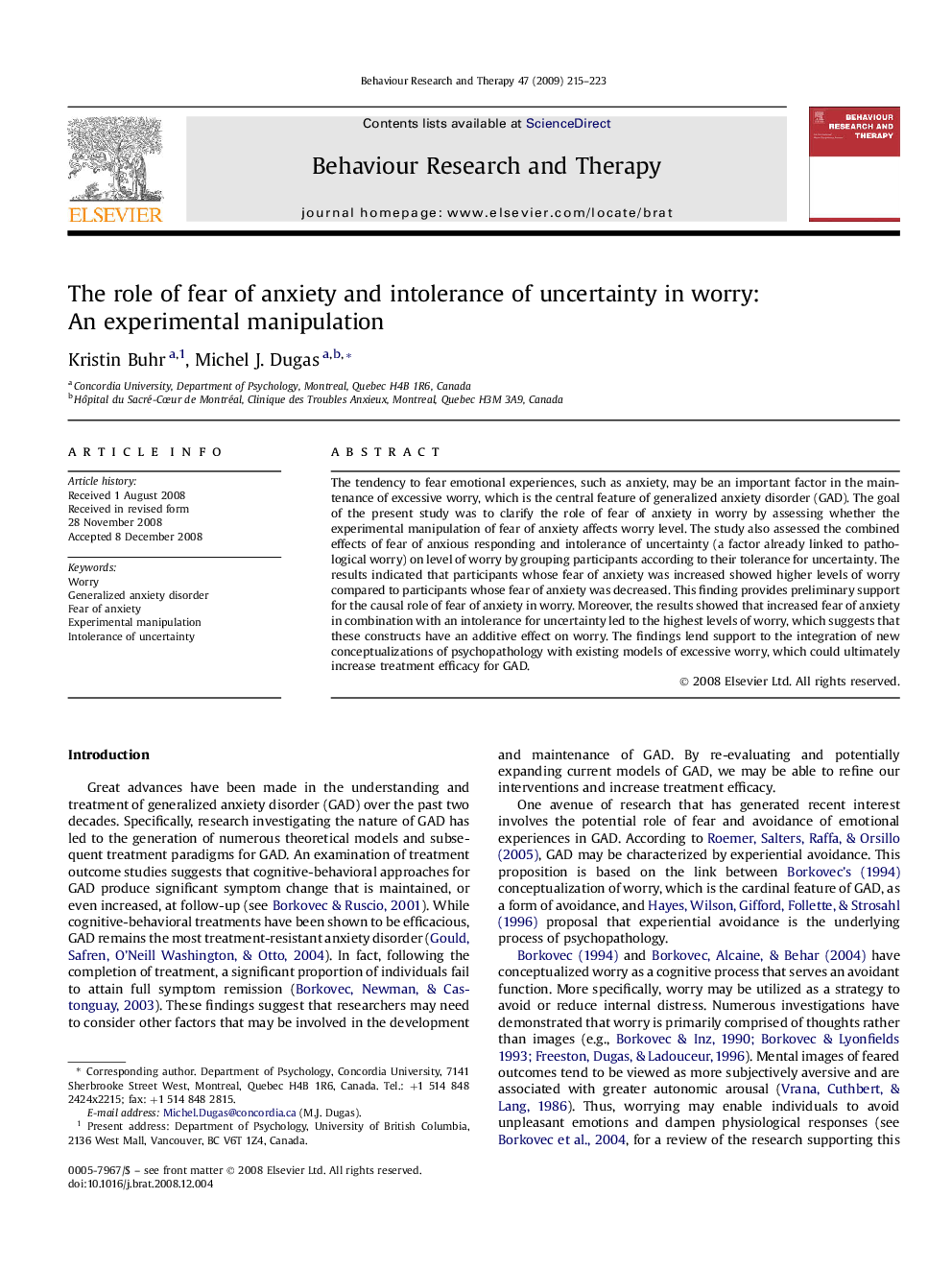| Article ID | Journal | Published Year | Pages | File Type |
|---|---|---|---|---|
| 902243 | Behaviour Research and Therapy | 2009 | 9 Pages |
The tendency to fear emotional experiences, such as anxiety, may be an important factor in the maintenance of excessive worry, which is the central feature of generalized anxiety disorder (GAD). The goal of the present study was to clarify the role of fear of anxiety in worry by assessing whether the experimental manipulation of fear of anxiety affects worry level. The study also assessed the combined effects of fear of anxious responding and intolerance of uncertainty (a factor already linked to pathological worry) on level of worry by grouping participants according to their tolerance for uncertainty. The results indicated that participants whose fear of anxiety was increased showed higher levels of worry compared to participants whose fear of anxiety was decreased. This finding provides preliminary support for the causal role of fear of anxiety in worry. Moreover, the results showed that increased fear of anxiety in combination with an intolerance for uncertainty led to the highest levels of worry, which suggests that these constructs have an additive effect on worry. The findings lend support to the integration of new conceptualizations of psychopathology with existing models of excessive worry, which could ultimately increase treatment efficacy for GAD.
